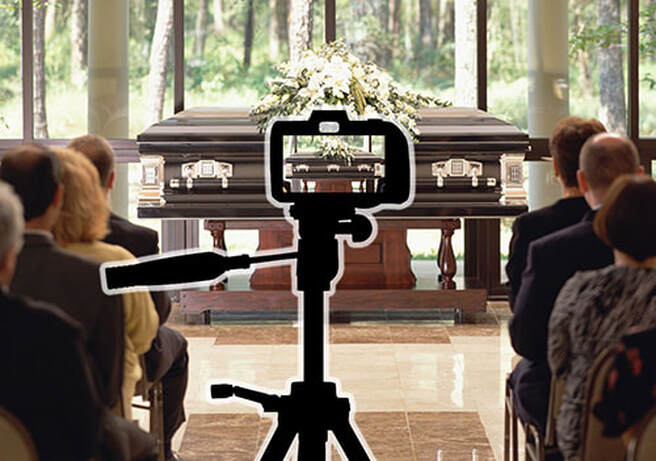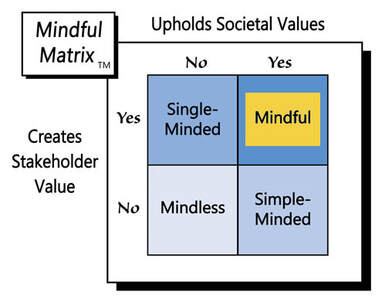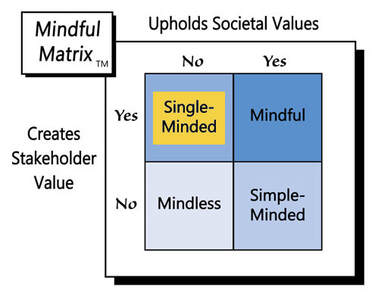Live streaming has been around for more than 20 years, but it’s more recently that funeral homes have entered the virtual realm. Some say the delay is due to the funeral industry being more conservative than most. It also might be because those most in-tune with the newer technology tend to be the Netflix-watching younger generations, who probably aren’t the biggest drivers of demand for funeral services.
Every year in the United States, around 19,000 funeral directors conduct approximately 2.4 million memorial services, yet some estimate as few as 20% of funeral homes offer streaming services. But, why does anyone want to watch the memorialization of someone they knew online?
The main reason is simple logistics. As people find new jobs or move for other reasons, family members and friends are “increasingly scattered around the country—and the world,” making it hard to travel to far-away cities and towns for funerals. Also, some people have health conditions or other constraints that make travel very difficult, if not impossible.
Our family appreciated live streaming firsthand recently, not for a funeral but for our son’s orchestra concert. Given that he’s enrolled in college over 10 hours from home, it’s not possible for us to attend most performances, but we were able to watch the first concert of the fall in real-time, thanks to the school live streaming the event.
Still, a funeral is very different than a concert, a sports contest, or other audience-driven entertainment. Should such a somber event be so widely shared? Is it disrespectful to ‘digitize the deceased?’
Whether it’s a wedding or a wake, almost anything can be filmed tastelessly or tactfully. Small ceiling-mounted cameras and wireless technology are some of the ways that videoing can happen unobtrusively. Plus, in the age of social media and selfies, most people are pretty used to cameras and picture-taking.
Of course, a primary consideration in deciding whether to live stream a funeral should be the final wishes of the departed—Did they want/not want their last remembrances broadcast? Short of any such directive, the decision lies with loved ones, who, in reality, are the ones the memorial service is truly for.
For family members and/or close friends of the deceased, a funeral service is a very important part of the grieving process. They’re the ones dealing most with shock, grief, and worry. They also probably want to honor the memory of someone about whom they cared deeply. Key questions, then, are: What brings loved ones comfort and what helps them commemorate?
The most likely answer is other people. When tragedy strikes or there’s an occasion to celebrate, we usually want to be with others. It’s at those times that we really appreciate the presence of people.
That need for social support reminds me of a funeral I attended last March. A dear friend of mine, with whom I had served on a church leadership team, played basketball and softball, and socialized with our spouses, passed away suddenly at age 58. I was shocked to hear the news and imagined that his wife and two children in their twenties were devastated.
Our careers had taken us to different parts of the state, but I wanted to attend his memorial service, even though it was on a weekday and about two hours away. I drove to the church and reflected on my friends’ impactful life during what was a very moving service. I also spoke briefly with his children and wife, giving her a hug and telling her how much I had appreciated her husband.
A couple of months later, I received a handwritten note from her in which she said how happy she was that I was able to come to the service and how much it meant to see an old friend from a special time in their lives. I had barely spoken with her at the funeral, so it seemed that just my being there made a big difference for her.
That experience makes me wonder whether live streaming funerals keeps people from being present at times when their presence is needed most? I doubt there’s data to shed light on that question, so I’ll try to answer it based on the reading I’ve done in preparation for this piece.
Journalists who have spoken with funeral directors suggest that live streams are most important to those who are unable to attend funerals because of factors like distance, cost, and health issues. No one mentions people who could attend services in person, choosing to watch live streams instead.
Such decision-making also resonates with my own experience. When my friend passed away suddenly, I really wanted to be there, and thankfully I was able to. I’m not sure if his memorial service was live streamed, but even if it was, my choice would not have changed. I suspect most people feel similarly—For someone important to them, they would like to be there in person, if at all possible.
Live streaming funerals is almost certainly a win-win: The opportunity to watch from afar doesn’t dissuade people from attending but gives those who can’t travel the ability to also experience a very meaningful moment. Even when it involves death, digital technology can deliver “Mindful Marketing.”
Learn more about the Mindful Matrix and Mindful Meter.
Check out Mindful Marketing Ads and Vote your Mind!







 RSS Feed
RSS Feed